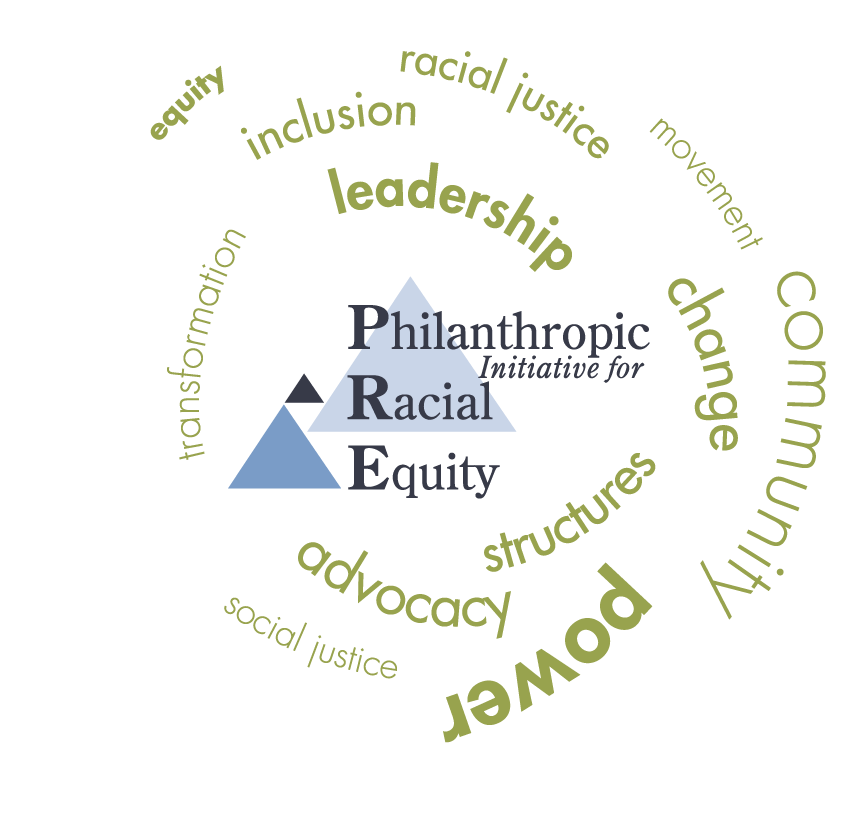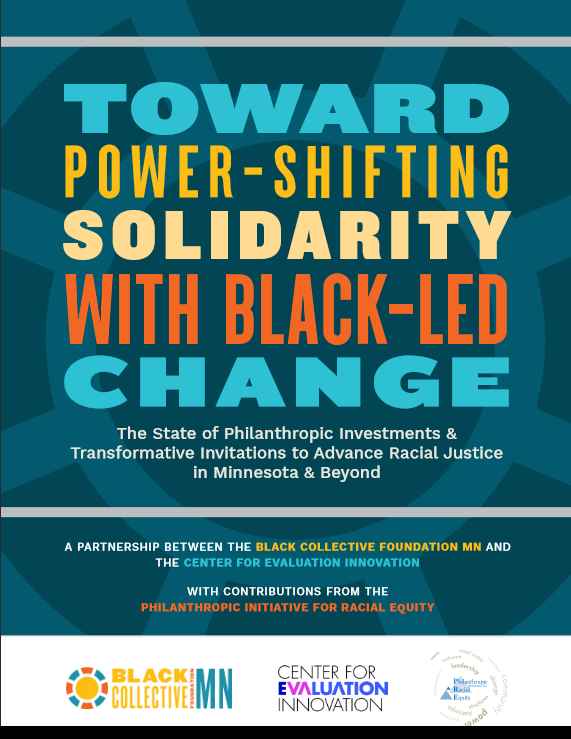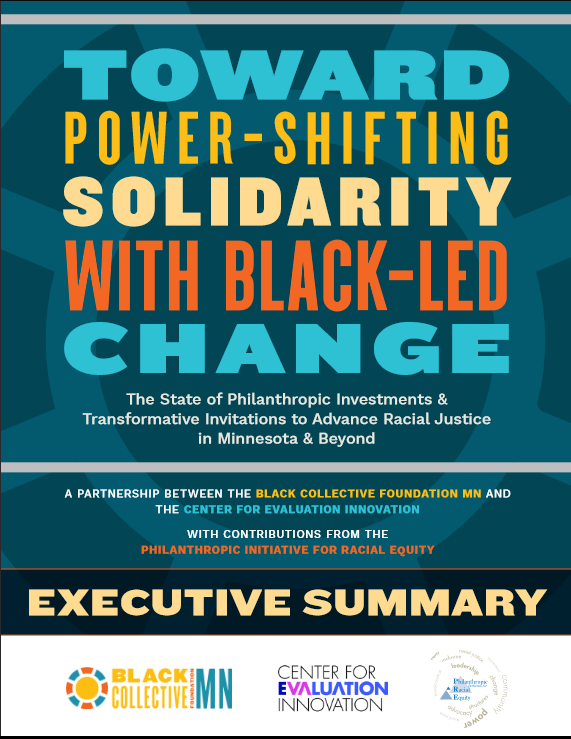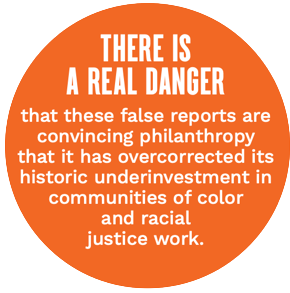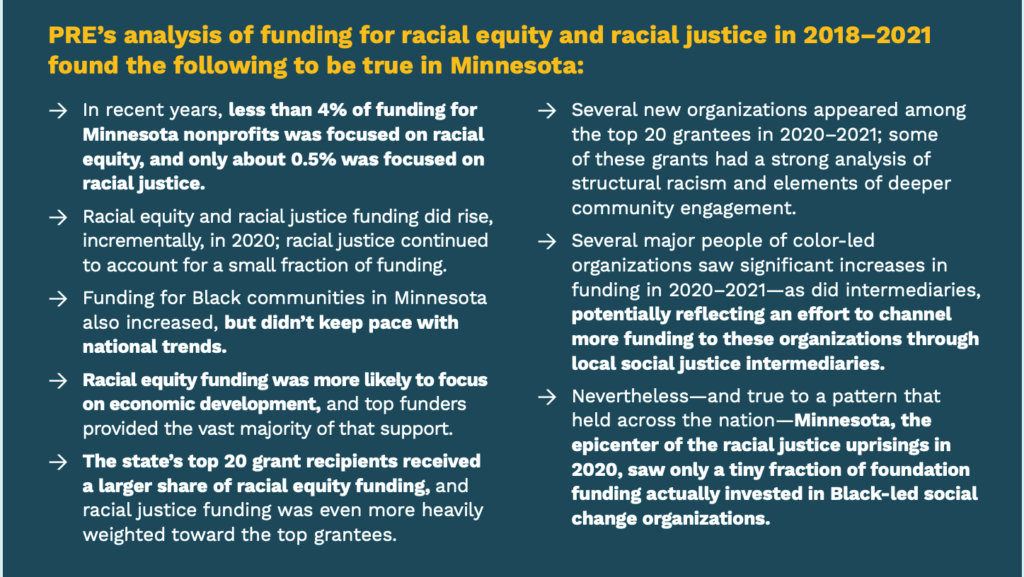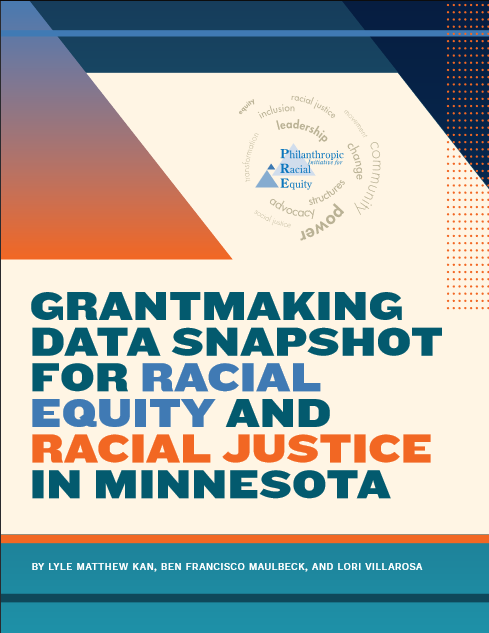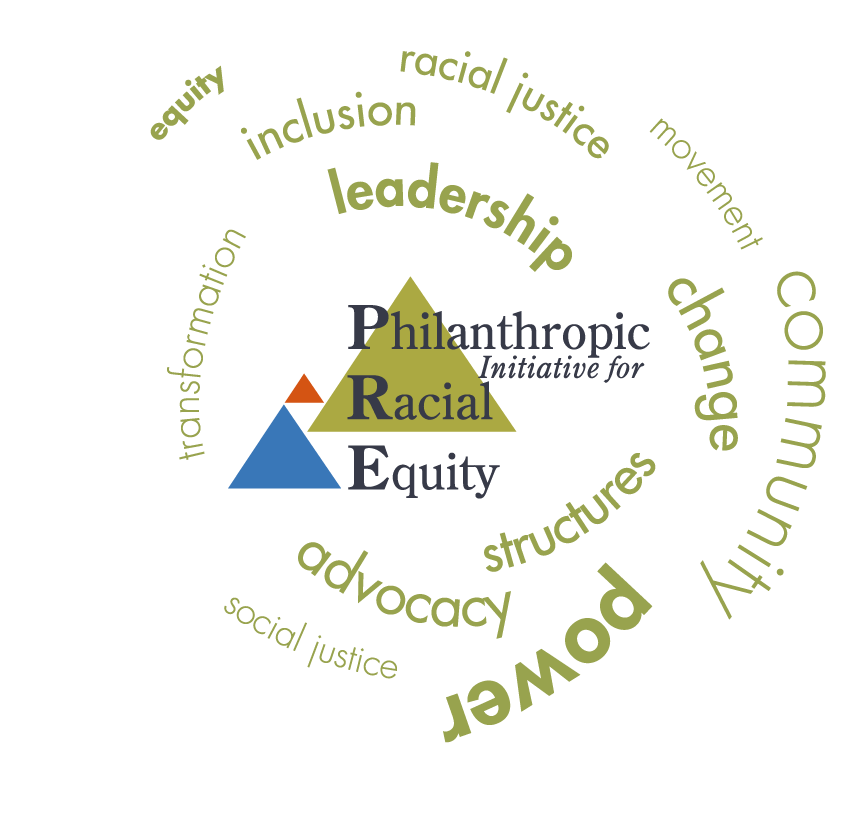PRE is pleased to join the Black Collective Foundation MN & Center for Evaluation Innovation in sharing findings of a deep dive into racial equity & racial justice grantmaking in Minnesota.
In May 2023, we commemorate the historic and global call for racial justice ignited right here in Minnesota. While it’s been three years since that uprising, the call–and need–for transformational change still reverberates today. The Black Collective Foundation MN has partnered with the Center for Evaluation Innovation with contributions by Philanthropic Initiative for Racial Equity (PRE) to release our first research report. The report integrates MN specific philanthropic data with voices across local philanthropy and Black-led change-makers exploring the definitions and impact of racial justice, Black-led change, and anti-Blackness. The report highlights local and national philanthropy’s investment in racial equity and justice to offer a baseline understanding of our funding landscape and center Black lives as we usher in a new kind of philanthropy that is accountable and inspired to be in power-shifting solidarity with Black-led change.
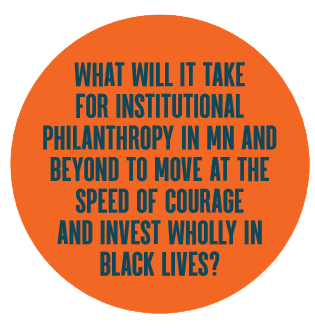
The Grantmaking Data Snapshot was compiled and principally authored by PRE Senior Fellow Ben Francisco Maulbeck and PRE Principal Research Consultant Lyle Matthew Kan. The two, who were also co-authors & researchers of Mismatched, worked diligently to analyze, and in some cases, additionally gather or correct, data from Candid‘s database to assess racial equity and racial justice grantmaking in Minnesota.
“Like our previous report Mismatched, our analysis of foundation funding for Minnesota shows that claims of massive increases in racial justice funding have been grossly exaggerated,” said Lori Villarosa, executive director of PRE and one of the report’s co-authors. “We’re pleased to see an increase in racial equity funding in the state, but it was an incremental one, and only a fraction focused on grassroots racial justice work led by and for Black communities. Nevertheless, a growing number of Minnesota-based funders seem to be beginning to develop a structural racism lens for their grantmaking – a trend we hope will continue.”
